Salomé Beyer Vélez contributed to this text.
Globally, round 1.7 billion voters in over 70 international locations took to the polls to forged their votes in what the Worldwide Institute for Democracy and Electoral Help deemed because the 2024 electoral super-cycle.
The Pew Analysis Heart highlighted 4 main themes for democracies around the globe, together with difficulties for incumbent events to remain in energy and the power that right-wing populism maintained all year long.
In Latin America, 2024 noticed six high-ranking elections, leading to historic feats for the area. The 12 months involves an finish with Mexico’s first feminine president, Panama’s promised tackling of migration within the Darién Hole, and Venezuela’s still-pressing political disaster, amongst others.
That is Latin America Stories’ abstract of the 2024 democratic elections within the area.
El Salvador
El Salvador’s right-wing president Nayib Bukele gained reelection on February 4, securing a second time period with over 80% of the vote.
Nevertheless, reports from El Faro, a Salvadoran impartial digital information outlet, alleged that Bukele’s self-proclaimed victory simply two hours after the voting cubicles closed and earlier than the Supreme Electoral Tribunal launched preliminary outcomes, was unfounded.
By the morning of February 5, the Tribunal had not reached 50% of the vote counts, though Bukele had already assured that he had gained with “over 85% of the favored vote.”
The 43-year-old president was first elected in 2019 after having been mayor of the south-western Nuevo Cuscatlán from 2012 to 2015 and of the nation’s capital, San Salvador, from 2015 to 2018.
Throughout his first time period as president, he was each praised for drastic reductions in murder and gang violence charges, and criticized as a consequence of allegations of human rights abuses and intimidation in direction of journalists.
Since 2022, Bukele has declared nationwide states of emergency over 30 occasions, which has allowed for an unprecedented discount in homicidal violence. Regardless, all residents’ rights of meeting and freedom of affiliation are indefinitely suspended all through these states of emergency.
Learn extra: El Salvador named one of the world’s safest countries in 2023: At what cost?
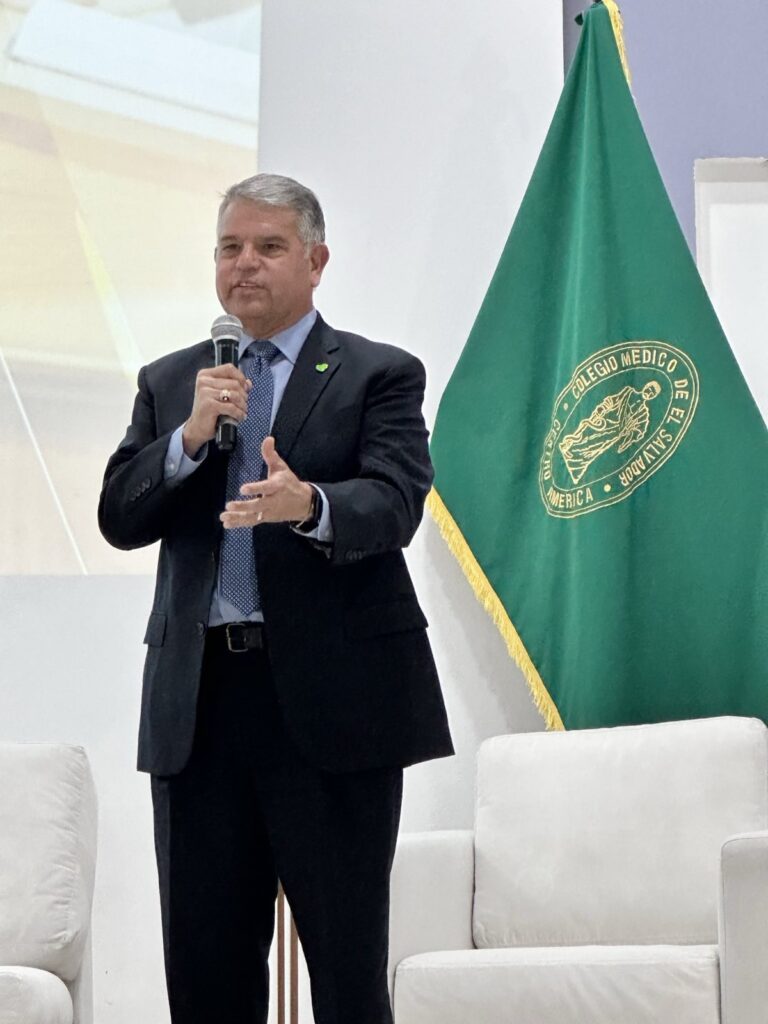
The February 2024 elections have been additionally contested by Luis Parada, a global lawyer and former military officer who claimed that Bukele had made an unlawful pact with Salvadoran gangs, put in a dictatorship and compelled an unlawful candidacy after having accomplished one time period as president.
“From the second that they allowed the present president to violate the Structure by inscribing an unconstitutional candidacy, the Supreme Electoral Tribunal demonstrated that also they are topics of President Bukele, and as such, unable to be an impartial and reliable arbitrator in these elections,” Parada stated after dropping the elections.
Regardless, Bukele claims that his administration has an approval score of over 91%.
Mexico
Claudia Sheinbaum grew to become Mexico’s first-ever lady to be elected president on June 2, securing a landslide victory by garnering over 33 million votes in an election with historic participation charges.
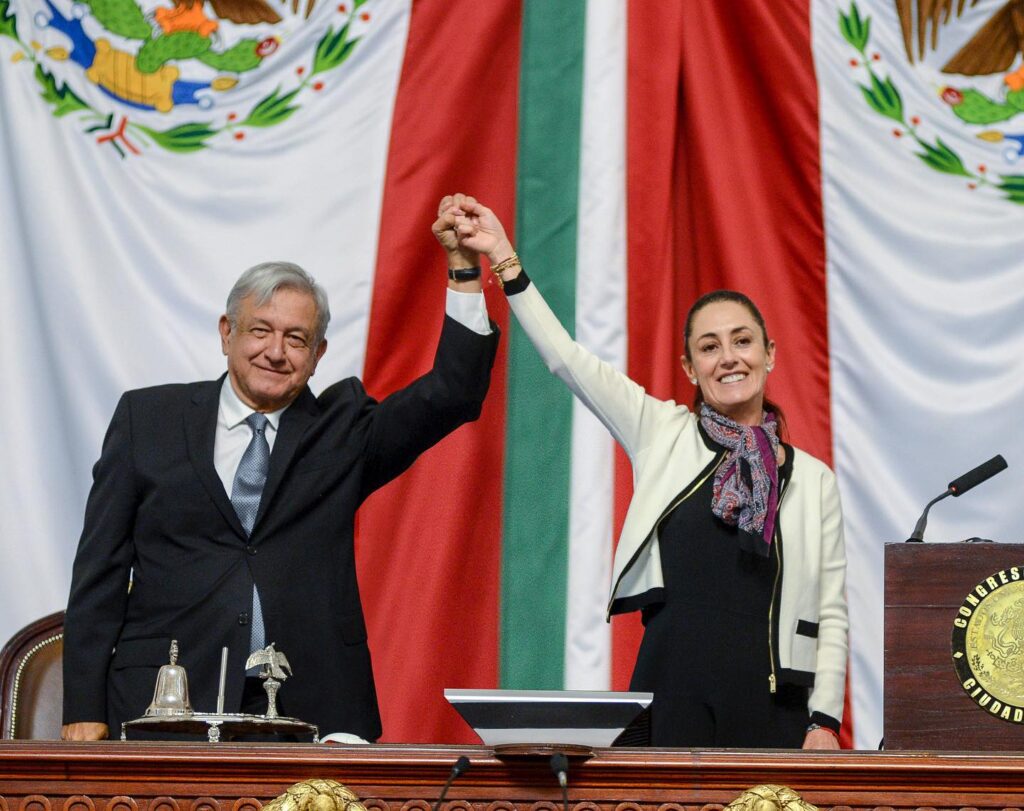
Picture Supply: Claudia Sheinbaum through Fb.
As a part of the incumbent MORENA get together, Sheinbaum constructed on the recognition of outgoing president Andrés Manuel López Obrador to strengthen her marketing campaign, according to the Pew Analysis Heart. With this, she defeated runner-up Xóchitl Gálvez, a candidate for the conservative opposition coalition Energy and Coronary heart for Mexico.
As a scientist, Sheinbaum was invited by López Obrador to guide the Environmental Secretariat of Mexico Metropolis throughout his mayorship in 2000. This marked the start of a deep political friendship, for which many have deemed her because the former-president’s legacy bearer, according to Nueva Sociedad, a Latin American socio-political evaluation journal.
Sheinbaum additionally served as Mexico Metropolis’s mayor for the 2018-2023 time period, throughout which she was closely criticized for allegedly mishandling protests, militarizing public areas, deploying anti-riot police models, and main a “witch hunt” towards feminists.
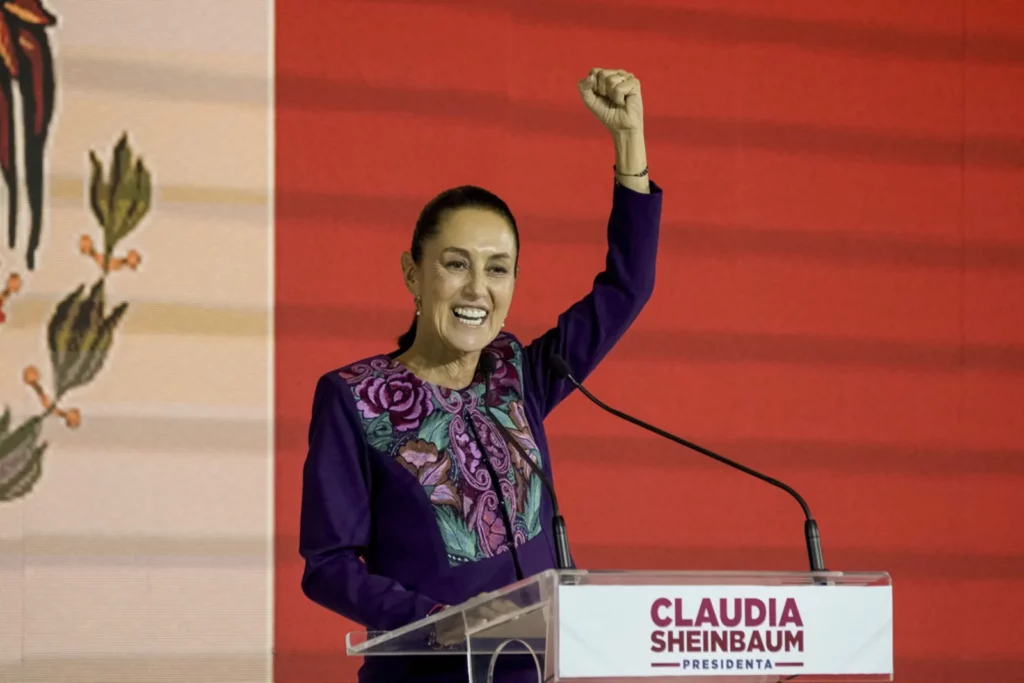
Since being sworn into workplace on October 1, nevertheless, Sheinbaum has achieved a 76% approval score, based on a survey revealed by newspaper El País. To date, the president has notably accomplished a controversial judicial reform, by which judges will now be chosen through standard vote, and introduced the development of 1 million low-cost houses all through the nation.
Learn extra: The beginning of the Claudia Sheinbaum era, Mexico’s first woman president
Dominican Republic
The Dominican Republic held its basic elections on Might 19, wherein incumbent president Luis Abinader gained with 57.4% of the votes. With this, he secured the presidency on the primary voting spherical.
Initially a businessman, the right-leaning president represents the Fashionable Revolutionary Social gathering and defeated eight different candidates together with former president Leonel Fernández from the leftist Energy of the Individuals Social gathering.
Throughout Abinader’s first presidential marketing campaign for the 2020 elections, he promised to struggle corruption and defeated the Dominican Liberation Social gathering, led by Danilo Medina, who was allegedly concerned within the Odebrecht corruption case, wherein a Brazilian development firm bribed Latin American governments to safe public contracts. According to Dominican newspaper Listín Diario, the scandal sparked widespread protests and discontent, which gave method for Abinader’s profitable first marketing campaign.
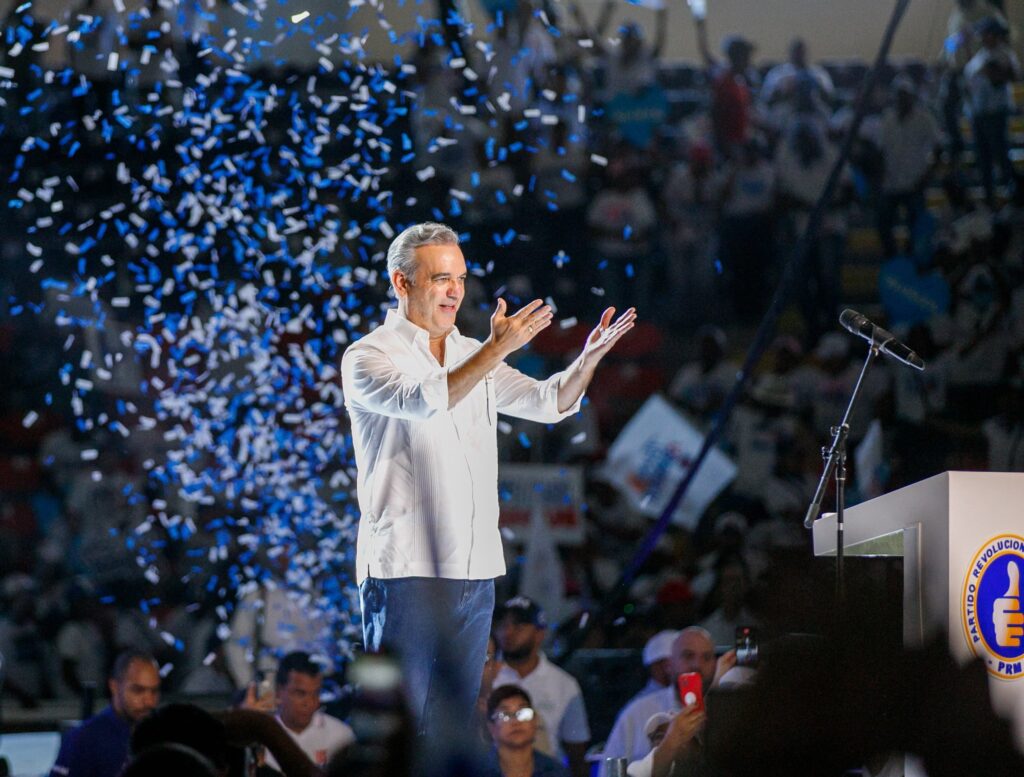
As soon as in workplace, Abinader led a police reform by which 3,000 cops reportedly acquired human rights coaching, and he additionally applied a strict migration coverage for residents of neighboring Haiti. In October, Abinader’s workplace confirmed that the migration coverage would proceed into his second time period, by which they’d “deport as much as 10,000 migrants per week.”
All through his first presidential time period, Amnesty Worldwide denounced human rights violations towards Haitian and Dominican-Haitian populations by migration officers and the armed forces. The group has additionally called on the now-reelected president to “eradicate racial profiling, structural racism, and discrimination.”
Regardless, Abinader’s second time period promises a Constitutional reform, and a reelection prohibition for presidents who’ve accomplished two consecutive phrases. One other precedence is financial progress by the creation of extra jobs and a reform to the Social Safety legislation.
“4 years in the past I got here earlier than you with the hope for change, and now I achieve this after having executed such hopeful change. I don’t converse from blind optimism, nor from expectations that ignore the obstacles that we’ll discover alongside the way in which,” Abinader stated on the eve of his reelection.
Panama
On Might 5, Panama went to the polls.The presidential race was marred with discontent with the ruling get together and inner turbulence throughout the opposition get together.
Corruption, migration and the economic system have been on the center of the marketing campaign for voters.
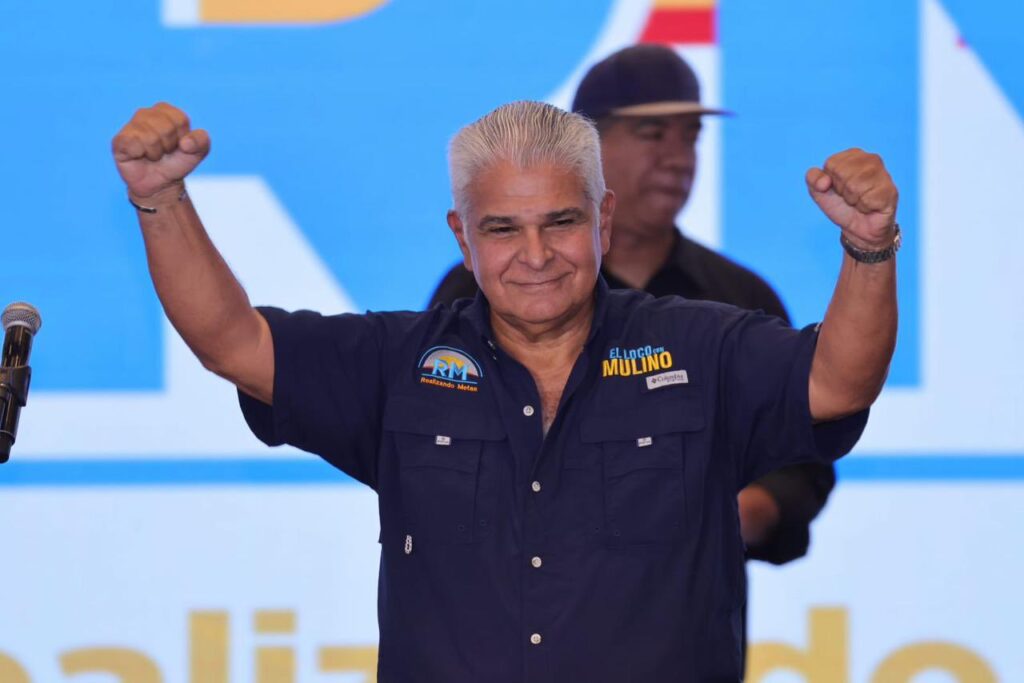
The incumbent, Laurentino “Nito” Cortizo, who’s broadly unpopular together with his authorities being characterised by unprecedented protest actions, had been constitutionally barred from operating for a second time period.
Proper-wing candidate José Raúl Mulino gained the election with 34.4% of the vote.
Mulino initially ran because the vice-presidential candidate of former president Ricardo Martinelli. However after a court docket sentenced Martinelli to 11 years in jail for cash laundering and barred him from operating for workplace, Mulino took his place on the prime of the ticket.
Mulino was allowed to run in a final minute supreme court docket decision, and the 64-year-old led the polls by enjoying up his connection to the ex-president.
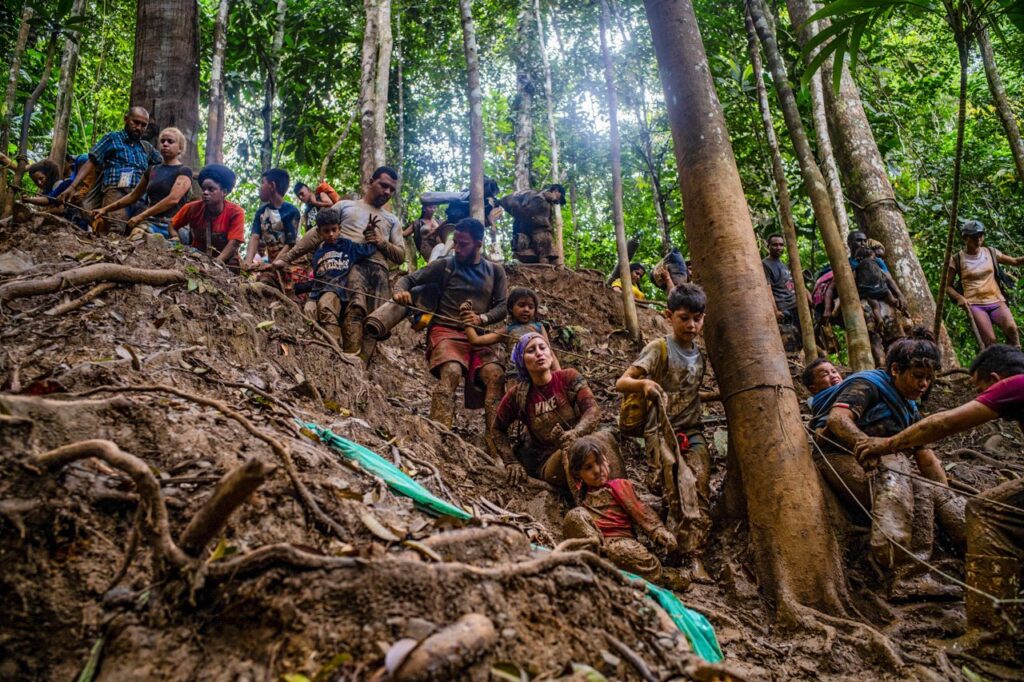
Picture Supply: Federico Rios through X.
Anti-corruption candidate Ricardo Lombana got here in second with 24.96% of the vote, adopted by former President Martin Torrijos and chancellor Rómulo Roux. All of them conceded the vote to Mulino the evening of the election.
Mulino took workplace on July 1 for a five-year time period, promising a return to sturdy financial progress and tackling migration within the Darién Hole.
Venezuela
On July 28, Venezuelans went to the polls in an election which might detonate the following chapter in a decade-long political disaster.
Within the run as much as the election, the federal government of authoritarian President Nicolás Maduro and the opposition participated in negotiations to set a path totally free and truthful elections. Regardless of this, many worldwide analysts and political pundits have been wary of what would happen.
The incumbent Maduro has been in energy since 2013 after his predecessor Hugo Chavez died from most cancers. His presidency has overseen extreme financial decline and rising crime which has led to the mass exodus of over 7.8 million Venezuelans from the nation.
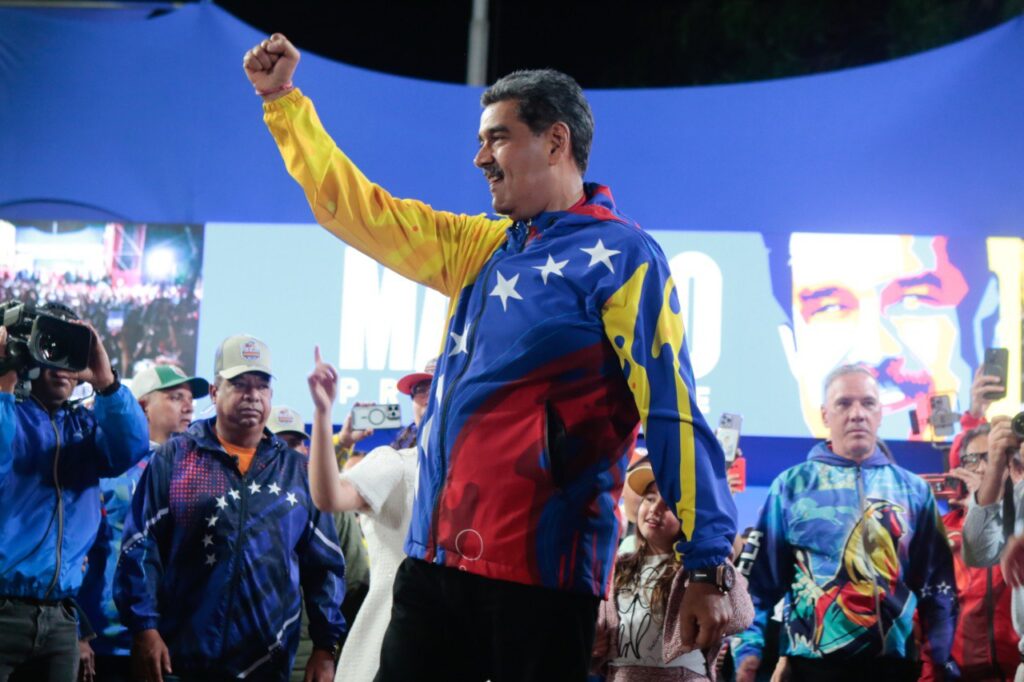
Picture Supply: PSUV through X.
The final presidential election in 2018, which Maduro won, was broadly boycotted by the primary opposition coalition amid accusations of fraud. On the time, the US-based group Freedom Home deemed the election “clearly unconstitutional” and referred to as Maduro a “dictator.”
Regardless of opposition chief María Corina Machado receiving an amazing 92.5% majority within the opposition’s main election in October 2023, the Maduro-allied supreme court docket upheld a ban which arbitrarily disqualified her from operating for workplace.
The opposition coalition, the Democratic Unitary Platform (PUD), then designated Edmundo González Urrutia, an unknown 75-year-old diplomat, as their alternate candidate.
After what had been largely peaceable elections on July 28, at midnight on July 29, the Maduro-allied Nationwide Electoral Council (CNE), with out offering proof, announced that Maduro had obtained 51.20% of the vote, profitable the election.
Quickly after, González Urrutia and Machado introduced that the opposition had its personal outcomes. With the assistance of hundreds of ballot watchers organized in 60,000 grassroots teams referred to as “comanditos,” the opposition was capable of collect 25,000 precinct-level tally sheets. The tally sheets, referred to as ‘actas’, symbolize 83.5% of all voting machines in electoral centres across the nation.
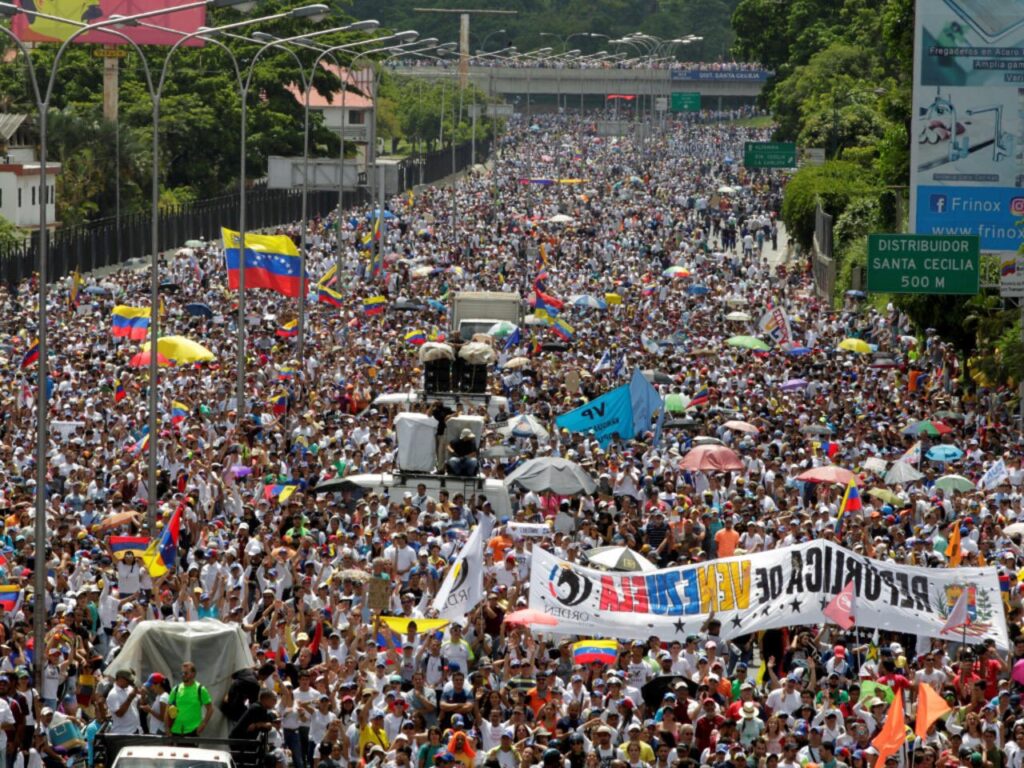
The ‘actas’, all of which have been revealed on-line and reviewed by worldwide election observers in addition to media retailers, showed that opposition candidate González Urrutia gained with 7.3 million votes and 67%, whereas Maduro obtained 3.3 million votes and 30% of the vote.
Learn extra: Down but not out: Venezuelan opposition building electoral fraud case against Maduro regime
The CNE’s outcomes brought on a significant outcry. All through the nation, tons of of spontaneous protests broke out towards Maduro’s win. These protests have been met with state repression and resulted in over 2,000 detentions.
In September, González Urrutia fled to Spain fearing a crackdown towards opposition members by the Maduro authorities. In truth, just a few days earlier than González Urrutia went into exile, the Maduro-allied Public Prosecutor’s Workplace issued an arrest warrant for the previous candidate, accusing him of usurpation of public funds and conspiring towards the state, amongst different crimes.
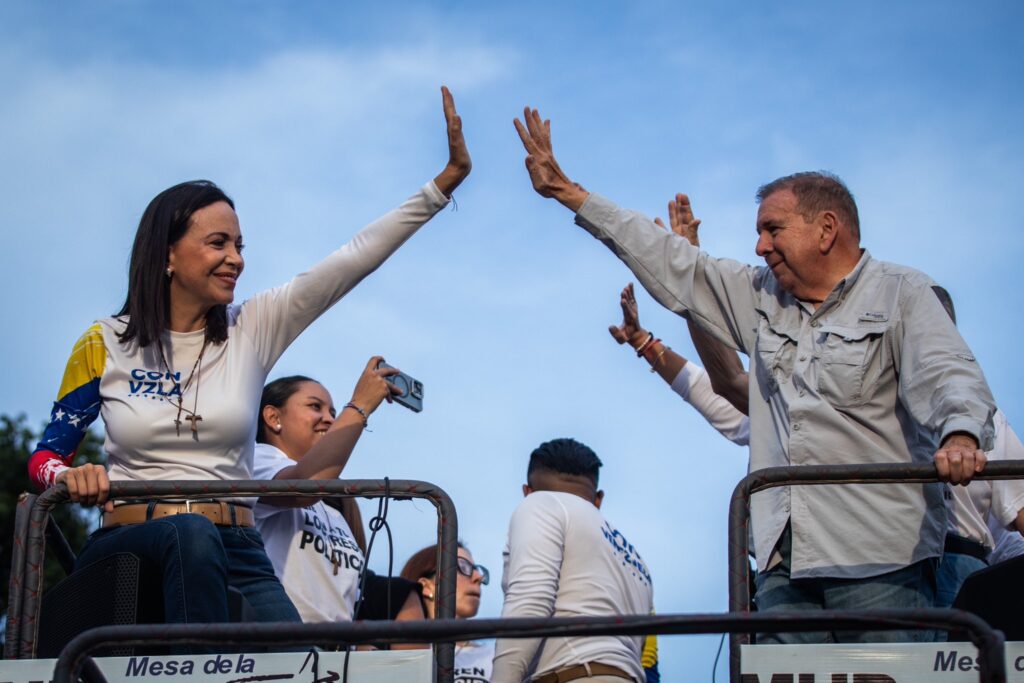
Picture Supply: Edmundo González through X.
From exile, González Urrutia has traveled throughout Europe, urging leaders to acknowledge his victory within the elections and “sharing the fact of Venezuela,” as he told Spanish newspaper El País in a December interview.
To this present day, the CNE and the Maduro authorities have but to supply an in depth breakdown of the voting outcomes. A number of worldwide our bodies have referred to as their outcomes into query.
The brand new presidential time period in Venezuela is about to start out on January 10, 2025. Each Maduro and González Urrutia affirm that they are going to be sworn into workplace.
Uruguay
Closing out the Latin American election supercycle was Uruguay, holding its first spherical of voting on October 27.
Throughout this primary spherical, no candidate obtained the mandatory 50% threshold to win the election outright. Yamandú Orsi of the center-left Broad Entrance coalition led the polls with 44.9%. He was adopted by Alvaro Delgado of the incumbent Nationwide Social gathering with 29.1% and conservative Andrés Ojeda of the Colorado Social gathering got here third with 17.3% of the vote.
The vote went to a runoff election on November 24, the place Orsi emerged victorious with 52,08% of the vote. Delgado obtained 47.92%.
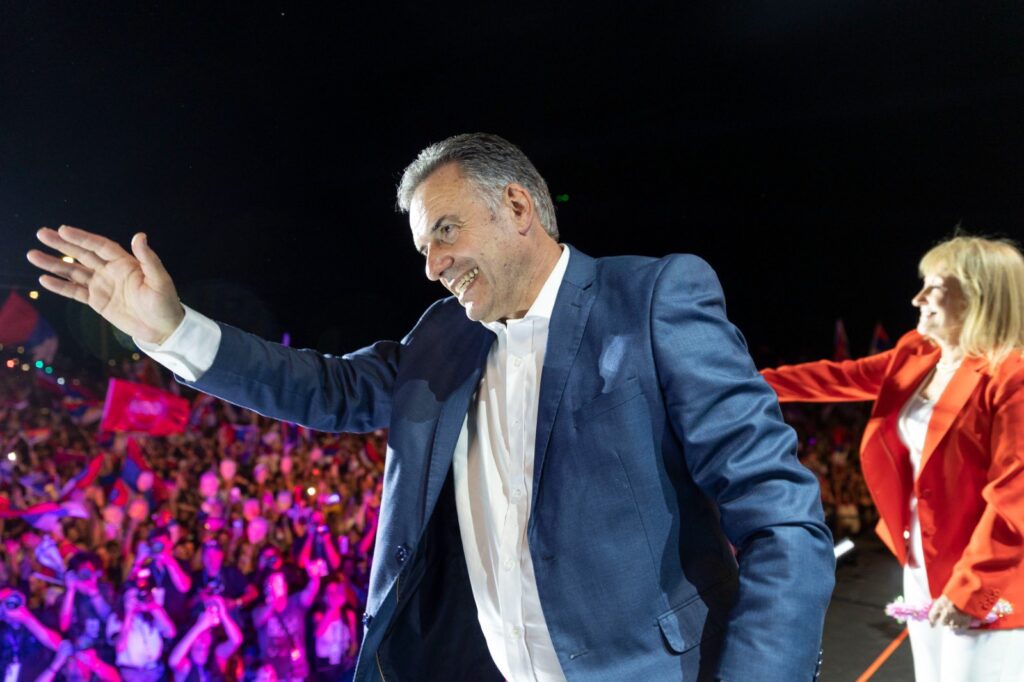
The incumbent authorities had been concerned in a number of scandals, equivalent to resignations after a passport was issued to an internationally-wanted drug-trafficking suspect and charges towards former senator Gustavo Penadés involving sexual crimes towards minors.
The opposition’s win, nevertheless, additionally displays a pattern in issues over the nation’s sluggish financial progress, stagnant wages and rising crime charges.
Learn extra: Left-wing Broad Front Coalition wins Uruguay’s run-off presidential election
Orsi has stated he’ll lead a “trendy left”, stating that he doesn’t have plans for radical change however seeks to handle points equivalent to homelessness, poverty and crime. The president-elect has been labelled the political inheritor of José Mujica, who held workplace between 2010 and 2015.
Orsi can be inaugurated into workplace on March 1, 2025.
What’s to return in 2025:
Wanting into the brand new 12 months, three Latin American democracies will maintain elections in 2025.
The primary can be Ecuador, with basic elections scheduled for February 19. Voting will come after a severe vitality disaster that left the nation with blackouts of as much as 14 hours a day for a number of months.
Present President Daniel Noboa was elected in 2023 after former President Guillermo Lasso referred to as an unprecedented snap election. With the vitality disaster, rising crime and a stagnant economic system, Noboa faces a troublesome highway to reelection.
Each Chile and Honduras will head to the polls in November.
Honduras will maintain its main elections in March 2025. Former first girl Ana García de Hernández is among the many 10 candidates registered for the first vote. She introduced her bid after her husband, former president Juan Orlando Hernández, was convicted of aiding drug traffickers in New York Metropolis.
In Chile, incumbent Gabriel Boric can’t be reelected to a subsequent six-year time period, as per Chilean legislation. His political legacy can also be in danger, nevertheless. Due partially to the shortage of a parliamentary majority, Boric’s get together – the left-wing Broad Entrance – has had nice difficulty enacting its platform of political and social reforms.
Whereas the ruling coalition carried out higher than expected in native and regional elections this 12 months, polls point towards a probable opposition win in 2025. However quite a bit can change within the coming months.
